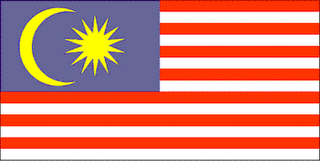
TIPS WHEN TRAVEL IN MALAYSIA
Currency
The unit of currency is the Malaysian Ringgit indicated as RM, which is equivalent to 100 cents. Coins are issued in denominations of 1, 5, 10, 20, 50 sen and RM1. Currency notes are in RM1, 2, 5, 10, 20, 50, and 100. Foreign currency and traveler's checks can be converted to Malaysian Ringgit at banks or authorized money changers throughout the country.
Airport Tax
An airport tax of RM5 and RM40 is charged upon departure for all domestic and international flight passengers respectively.
Telephone
Local calls can be made from public phones, whether coin or card operated. International calls can be made from phone booths with card phone facilities or at any Telecom offices. Most hotels are equipped with IDD services with a minimal service charge. - Useful Phone Directory
Tourist Police
Visitors who encounter unforeseen problems and difficulties can seek the Malaysian Tourist Police Unit for assistance. They often patrol tourist spots and will render assistance, as well as safeguard tourists' security.
Business Hours
The country runs on a normal eight hours a day system with Saturday as half day and Sunday as a day of rest. In the states of Kelantan, Terengganu, and Kedah, Friday is a day of rest with Thursday as half days. Department Stores and supermarkets are open daily from 10 a.m. to 10 p.m.
Tipping
Tipping is not a way of life in Malaysia, but is fast becoming one.
What to Wear
Light, cool, and casual clothing is recommended all year round. For more formal occasions, men should wear jackets, ties, or long-sleeved batik shirts whereas women should wear dresses.
Water
It is generally safe to drink water straight from the tap, but it is safer to drink boiled water or bottled beverages.
Medical Services
Medical services are available in most towns at government hospitals and private clinics. Non-prescription drugs are available at pharmacies, as well as supermarkets, hotels, and shopping centers.
Local Touch
Food hawkers selling traditional and local delicacies make up the everyday scenes in big or small towns throughout the country. One can try "teh tarik", a smoothened, creamed tea, and "roti canai", a fluffy pancake prepared by a local person of Indian Muslim ancestry. Spicy Malay food, such as "nasi lemak" and various kinds of Chinese noodles are also popular. People from all walks of life frequent these food stalls.
As Malaysia is a multi-religious country, various Muslim mosques, Buddhist temples, Hindu temples, and Christian churches can be found almost anywhere. Despite the many changes and developments in the cities and big towns, Malaysia has many "kampung" (villages), jungles, beaches, and rice fields. Many houses in the "kampung" are built on stilts. Batik cotton fashion is popular in Malaysia . It can be used for casual wear, as well as formal functions.
Drug traffickers are sentenced to death by Malaysian Law.

Post a Comment